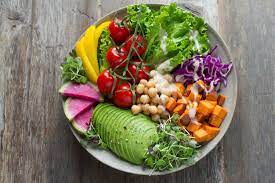As we continue on with the year, many of us are looking for ways to live a healthier lifestyle. One way to do this is by transitioning to a plant-based diet. The benefits of a plant-based diet for human health are well documented and include a lower risk of chronic diseases such as heart disease, diabetes, and certain cancers, as well as a reduced carbon footprint on the planet.
If you’re considering switching to a plant-based diet in the Philippines, it’s essential to do your research and learn about the foods that you should eat and avoid. Going vegan is not just about eliminating animal products from your diet, but also about making sure you’re getting all the essential nutrients your body needs. It’s crucial to make sure you’re still getting enough protein healthy fats, calcium, iron, and other essential vitamins and minerals.
One of the biggest misconceptions about a plant-based diet is that it’s boring and lacks flavor. However, with a little creativity and experimentation, you can create delicious and satisfying plant foods and meals that are both nutritious and enjoyable. Whether you’re looking to improve your health, reduce your carbon footprint, or simply try something new, there are plenty of plant-based options available in the Philippines. In this article, we’ll explore some of the best plant-based diets to try for a healthier 2023, as well as the vegan diet food to eat to ensure you’re meeting your nutritional needs.
What is a plant-based diet?
A plant-based diet is a way of eating that prioritizes whole, minimally processed foods that come from plants. This includes fruits, vegetables, nuts, and seeds. While a plant-based diet can be vegetarian or vegan, it doesn’t necessarily mean that you have to give up all animal products. Some people choose to include small amounts of meat, fish, eggs, or some dairy products in their diet, while others choose to eliminate them completely. The key focus of a plant-based diet is on consuming nutrient-dense, whole foods that are rich in vitamins, minerals, and antioxidants.
Benefits of eating only plant-based foods
When it comes to identifying the many health benefits of vegan diets, you’ll be noticing one key factor that will constantly pop up: fiber. Other than needing it for much faster internet speeds, a healthy intake of fiber will significantly improve your diet quality.
1. Reduced risk of chronic diseases
A plant-based diet has been linked to a lower risk of heart disease, the leading cause of death worldwide. This is due to the fact that plant-based diets tend to be lower in saturated and trans fats, which can contribute to high cholesterol levels and clogged arteries. Plant-based diets are also rich in fiber, which can help lower blood pressure and reduce the risk of type 2 diabetes.
2. Better weight control
Plant-based food tends to be lower in calories and higher in fiber, which can help with weight management. Fiber is a type of carbohydrate that is not digested by the body, which means it adds bulk to your diet without contributing to calorie intake. High-fiber foods, such as fruits, vegetables, whole grains, and legumes, can help you feel full and satisfied, which can lead to reduced calorie intake and ultimately weight loss. Additionally, plant-based diets are often rich in nutrients such as vitamins, minerals, and antioxidants, which can help support overall health and wellness. Most of the time, plant-based eating will have better health benefits compared to the amount of cholesterol and fat that can be found in animal foods.
3. Better digestive health
Plant-based eating can improve digestive health because they are rich in fiber, which can promote regular bowel movements and prevent constipation. Fiber is a type of carbohydrate that is not broken down by the body but rather passes through the digestive system largely intact. This helps to add bulk to stools, making them easier to pass. Additionally, fiber acts as a prebiotic, which means it feeds the good bacteria in your gut, helping to maintain a healthy balance of bacteria in the digestive system. Some plant-based foods, such as fermented foods like tempeh and kimchi, also contain probiotics, which are live bacteria that can help support digestive health. Overall, a plant-based diet can provide the fiber, prebiotics, and probiotics needed for a healthy digestive system.
4. Environmentally friendly
In addition to being beneficial for our health, a plant-based diet can also be more environmentally sustainable than diets that rely heavily on animal products. Animal agriculture is a major contributor to greenhouse gas emissions and deforestation, which can have negative impacts on the planet. Choosing to eat more plant-based food can help reduce our carbon footprint and preserve natural resources.
5. Animal welfare
Going for a plant-based diet can improve animal welfare because it reduces the demand for animal sources, which in turn can decrease the number of animals raised for food. Animal agriculture is a major contributor to animal suffering, as many animals are raised in cramped and unsanitary conditions, often subjected to cruel practices such as confinement, mutilation, and separation from their young. By choosing to eat plant-based meals, individuals can reduce their contribution to the demand for animal-based foods and encourage more ethical and sustainable farming practices. Additionally, some plant-based foods, such as soybeans and lentils, can be used as alternative protein sources in place of animal-derived ingredients, reducing the growing demand for animal farming altogether.
Multiple environmental benefits and better weight control? While it can sound too good to be true, going for a plant-based diet does have its own drawbacks. Especially in the Philippines, a country that has a diverse range of food options that makes it nearly impossible to refuse to eat meat. Going vegan also requires a lot of self-discipline. Since we already talked about what’s so good about it, let’s discuss the possible problems you may encounter when it comes to vegan diets.
Risks of a vegan diet
While there are many benefits to a vegan diet, there are also some potential risks to consider. These include:
1. Nutrient deficiencies
Depending on the specific foods you choose, a plant-based diet may be low in certain nutrients that are commonly found in animal products, such as vitamin B12, iron, calcium, and omega-3 fatty acids. However, these nutrients can still be obtained through fortified foods or supplements.
2. Increased carbohydrate intake
Plant-based foods tend to be higher in carbohydrates than animal-based diets, which can be a concern for individuals with certain medical conditions, such as type 2 diabetes. However, choosing complex carbohydrates such as legumes and vegetables can help manage blood sugar levels.
3. Potential for processed products
While a plant-based diet should focus on whole, minimally processed foods, it is still possible to consume products that are highly processed such as vegan junk food, which can contain added sugars and unhealthy fats. If you don’t look properly at the product ingredients and how it was prepared, you can easily fall victim to a product that claims it being plant-based at the cost of adding a lot of artificial factors to replace non-plant sources.
4. Social challenges
Depending on where you live and your social circle, it may be difficult to find plant-based options when eating out or attending social events. This can make it challenging to maintain a plant-based diet in certain situations. In the Philippines, it would be nearly impossible to try and find a family reunion that doesn’t contain lechon or a party that doesn’t have fried meat as a companion to drinks.
It’s important to note that these risks can be managed with proper planning and education. Consulting a registered dietitian can be helpful in creating a balanced and nutrient-dense plant-based diet that meets your individual needs.
The different types of a plant-based diet
Before taking the leap to focus on plant-based foods, you should know the different types. Here are some popular foods derived from plant-based diets:
Vegan diet
A vegan diet eliminates all animal products, including meat, dairy, eggs, and honey. It is a plant-based diet that requires careful planning to ensure an adequate intake of essential nutrients such as vitamin B12, iron, and calcium.
Vegetarian diet
Vegetarian diets eliminate meat, poultry, and seafood, but may include dairy and/or eggs. It can be a healthy and sustainable option when balanced with a variety of plant-based foods.
Flexitarian diet
A flexitarian diet is a semi-vegetarian approach that includes occasional meat consumption while primarily focusing on plant-based foods. It allows for greater flexibility in food choices and can be easier to sustain for some individuals.
Mediterranean diet
A Mediterranean diet is primarily plant-based and emphasizes whole foods such as fruits, vegetables, whole grains, legumes, nuts, and seeds. It also includes moderate amounts of fish, dairy, and poultry, and small amounts of red meat and sweets.
Raw food diet
A raw food diet emphasizes uncooked, unprocessed plant-based foods such as fruits, vegetables, nuts, and seeds. While it can be rich in nutrients, it may be difficult to obtain adequate protein and some vitamins and minerals.
Whole-foods, plant-based dietA whole-foods, plant-based diet emphasizes whole, minimally processed plant-based foods such as fruits, vegetables, whole grains, legumes, nuts, and seeds. It eliminates or minimizes animal products, added sugars, and processed foods.
6 Best plant-based recipes to try in 2023
If you’re looking to try out plant-based eating or are simply looking for some new delicious recipes to add to your kitchen, you’re in luck. We’ve gathered some of the best and most delicious plant-based recipes that are sure to satisfy your taste buds and nourish your body. From classic comfort foods like vegan lasagna and lentil soup to vibrant and flavorful options like Buddha bowls and chickpea curry, there’s something for everyone on this list. So, grab your apron and get ready to whip up some plant-based goodness! Here are some delicious plant-based recipes:
1. Vegan lasagna
This classic Italian dish can be made vegan by using a tofu or cashew-based ricotta cheese, layering with plant-based meat alternatives, and topping with a vegan cheese sauce. It’s a hearty and satisfying dish that can be enjoyed by vegans and meat-eaters alike.
2. Buddha bowl
A Buddha bowl is a nourishing and colorful bowl of grains, vegetables, protein, and sauce. The possibilities are endless, but some popular ingredients include quinoa, roasted sweet potatoes, roasted chickpeas, avocado, and tahini dressing. It’s a great way to pack in a variety of nutrients and flavors in one bowl.
3. Lentil soup
Lentil soup is a comforting and hearty soup that can be made with just a few simple ingredients. It typically includes lentils, vegetables such as carrots and celery, and a flavorful broth. It’s high in protein, fiber, and other important nutrients.
4. Chickpea curry
Chickpea curry is a flavorful and easy-to-make plant-based meal. It typically includes chickpeas, coconut milk, and an array of spices such as turmeric, cumin, and coriander. It can be served with rice, naan bread, or roasted vegetables.
5. Vegan burger
Vegan burgers can be made with a variety of plant-based ingredients such as black beans, lentils, quinoa, or mushrooms. They can be grilled or baked and served with toppings such as avocado, lettuce, tomato, and vegan cheese. They’re a delicious and satisfying alternative to traditional burgers.
6. Tofu stir-fry
Tofu stir-fry is a quick and easy plant-based meal that can be customized with a variety of vegetables and sauces. Tofu is a great source of plant-based protein and can be marinated for added flavor. It’s a great way to get in a variety of vegetables and flavors in one dish.
These recipes are just a few examples of the many delicious and satisfying plant-based meals available. They’re easy to make and can be customized to your personal preferences and dietary needs.
Incorporating more plant-based meals into your diet can have numerous benefits for your health and the environment. Whether you’re looking to try out plant-based eating for the first time or are a seasoned vegan, these delicious recipes are a great place to start. At Asterra, we believe in promoting sustainable living and wellness, which is why we offer spaces that support healthy lifestyles. By combining the benefits of plant-based eating with a sustainable living environment, you can make a positive impact on your health and the world around you. So, let’s continue to make conscious choices and live our best lives, one nourishing meal and sustainable home at a time. Contact us today and find your dream space for tomorrow.
Written by Renzo Guevara





